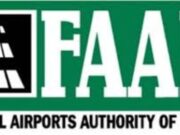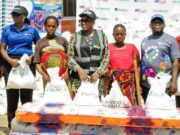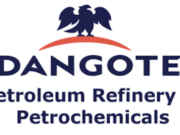The Director General of the National Agency for Food and Drug Administration and Control (NAFDAC), Prof. Mojisola Adeyeye, has assured that she remains unfazed by the death threats she has received in response to the agency’s crackdown on counterfeit drug manufacturers.
Despite the threats she has been receiving following a simultaneous operation to dismantle major fake drug distribution networks in Kano, Idumota, Yaba, and Onitsha, she reaffirmed her unwavering commitment to protecting public health in Nigeria.
While the operation has been completed in some locations, including Idumota, it is still ongoing in Onitsha.
Briefing the media in Abuja on Friday on the blacklisting of an India-based pharmaceutical company for manufacturing and exporting addictive pills containing a dangerous mix of Tapentadol and Carisoprodol, known as Tafrodol or Royal 225, Adeyeye reaffirmed her call for stricter penalties against counterfeit drug manufacturers and vendors, calling on the legislature to enact stronger laws and the judiciary to deliver judgments that reflect the severity of the crime, ensuring effective deterrence.
Undeterred by the death threats she has received, Adeyeye declared herself a woman on a mission vowing to continue her work unwaveringly, saying, “I was in the U.S. for 37 years.
“I came back home for service. I could have been there, comfortable. And I tell people I came here as a missionary.
“If missionaries could leave their comfort zones where they were born and live with us in Nigeria, I do not have an excuse to come back home.
“Coming back home is not easy, it’s a sacrifice. I have grandchildren, I have children, that I don’t see. So fear is not part of my daily dictionary.
“My coming back is to come and serve but that doesn’t mean I don’t use my common sense. I use a lot of common sense, but it’s not just me alone; it’s also about my staff.
“I was not the one that was beaten and bleeding in Onitsha, six months ago because they were on an inspection operation.
“There is one of our staff; one day, I just looked at her arm and said, what happened? She said they went for an inspection, and she almost lost her life.
“That is why the government has to know what we are doing and to compensate our staff accordingly, to protect us”.
She stressed that if the workers of the agency remain resolute in their duties, even at the risk of their safety and lives, the legislature and judiciary must uphold their efforts, ensuring justice and providing the public with the health security they deserve.
Criticising the leniency in Nigeria’s legal system regarding drug counterfeiting, she argued that those responsible for producing and distributing fake medicines should face severe consequences.
“Somebody put zero content in a medicine that a child is going to take, and the child died. What is the punishment? It should be a death penalty.
“Why should someone be responsible for the death of another person and walk free?” she lamented.
She expressed hope that the ongoing legislative revisions by the 10th National Assembly would introduce stronger deterrents against drug counterfeiting, noting that the bill, initially proposed during the 9th Assembly, was delayed and did not receive presidential approval before the transition of government.
She, however, emphasised that combating counterfeit medicine requires collective cooperation and collaboration while calling for stronger local regulatory agencies and enhanced international partnerships to curb the influx of fake drugs into Nigeria, among other necessary measures.
Highlighting her recent engagement with regulatory counterparts in India to advocate for stricter export regulations, she said, “Most of the fake drugs in Nigeria are imported.
“They don’t fly in; they come through our borders. Strengthening bilateral agreements with exporting countries is key to stopping them at the source”On the part of the public, she urged Nigerians to support NAFDAC’s efforts by reporting suspicious pharmaceutical products and standing against corruption in the health sector.
“We must change our mindset. Doing the right thing should not be an exception, it should be the norm,” she said.
On the challenges facing NAFDAC’s operations, Adeyeye outlined four major impediments to effective regulation, corruption, inadequate staffing, financial constraints, and lack of inter-agency cooperation.
“The biggest problem is our collective tolerance for corruption, as a society. Bribes compromise regulatory integrity, and when someone pays to bypass inspections, lives are lost,” she said.
She also noted that when she assumed office, NAFDAC was burdened with ₦3.7 billion in debt, with outdated equipment, no operational vehicles, and directors lacking basic tools like laptops.
“Companies were even sending us vehicles to inspect their facilities, how can a regulator accept such an offer without compromising its independence?” she asked.
She said staffing remains another critical challenge, “Our work is 24/7, and our staff face hazards, including kidnappings and physical attacks.
“We need more personnel, but we are not asking for 10,000 people overnight. We need strategic support to strengthen our operations,” she stressed.
On financial sustainability, she said that despite NAFDAC’s efforts to increase internally generated revenue and reduce corruption, the agency still requires government support to fulfill its mandate.
As NAFDAC continues to tighten regulations and enforcement, the DG assured the public that the agency remains committed to protecting lives and ensuring that only safe, high-quality medicines are available in Nigeria.
Credit: thenationonlineng.net









































































